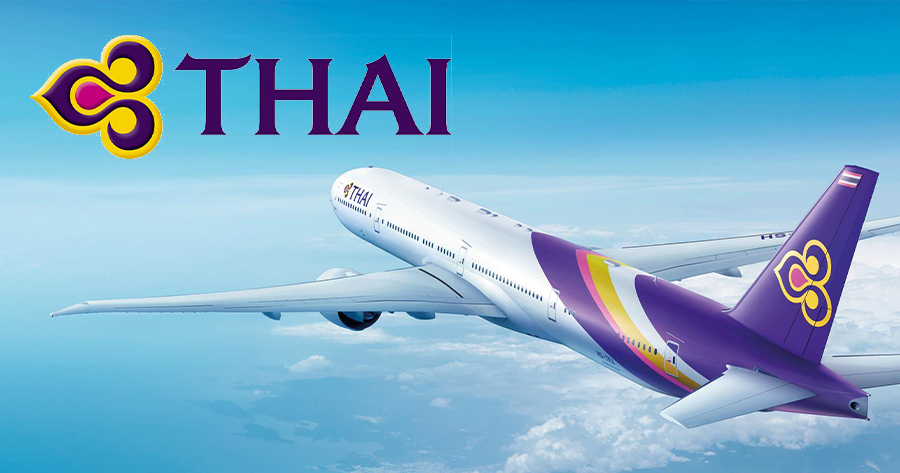Kasikorn Securities (KS) shared positive takeaways after its latest analyst meeting with Thai Airways International Public Company Limited (SET: THAI), highlighting the airline’s strategic direction for the rest of 2025 and beyond.
KS expects Thai Airways’ cabin factor to remain solid, targeting around 78-80% in the second half of 2025, closely aligning with the 80.2% achieved in the first half. Passenger yields are forecast to stay consistent, at approximately Bt2.79, reflecting continued strong market demand.
Maintenance costs per available seat kilometer (ASK) are projected to rise in the second half but should average about Bt0.31 per ASK for 2025—on par with 2024 levels. This demonstrates the airline’s efforts to manage its operational costs even as it readies to expand its fleet.
KS highlights growing demand in the premium economy, while business class remains resilient. Thai Airways aims to solidify its position as a premium leisure carrier and will ramp up premium economy seats in new aircraft. The carrier will adjust its newly acquired A330s by marketing the business cabin as “premium economy plus” to better match passenger expectations.
Thai Airways will keep fuel hedging coverage below 30% of total usage, primarily via zero cost collar strategies. As of now, 15% of fuel requirements have been hedged for 4Q25 and 10% for 1Q26, aiding cost predictability.
The arrival of A321neo aircraft in 2026 will enhance capacity and efficiency, especially on routes of 4-5 hours where larger jets are currently used. Smaller, more efficient planes will allow for more frequent flights and better cost control. New routes to India, China, and Indonesia are planned, along with increased frequencies on flights to Singapore and Hong Kong.
The management anticipates available seat kilometer (ASK) growth of about 6% year-on-year in 2026, with scope to reach 16% if wide-body aircraft acquisitions exceed current plans.
Kasikorn Securities concludes that Thai Airways is poised for continued recovery, with a focus on premium market segments, rigorous cost management, and a modernized fleet.
Meanwhile, CGS International Thailand maintains a neutral stance on Thai Airways following the company’s second quarter 2025 analyst meeting, reiterating its “Hold” rating with a target price of THB13.4.
According to CGSI, management believes that Thai Airways is operating at an optimal cost structure, offering limited further opportunities for non-fuel cost cuts. A stronger baht in 2Q25 eased some non-fuel expenses, while a downsized leased fleet reduced financing costs. Maintenance activity was subdued in the first half but is set to increase in 2H25, with maintenance cost per ASK likely to remain in line with FY24.
From April 2025, staff benefits rose due to salary adjustments, which were fully reflected in the second quarter. Further pay increases for select roles will be phased in over the next three to four years. Additional hires will support expansion, but back-office headcount will remain flat, with a goal to keep employee expenses under 13% of total costs.
Thai Airways’ fuel hedging coverage stands at about 30%, primarily through zero-cost collar swaps, a conservative level reflecting ongoing credit constraints after exiting rehabilitation. The company is exploring options to expand credit lines and hedging capacity, which will require partnerships.
For the second half of 2025, management forecasts ASK growth of 1–3% year-on-year, flat yields compared to the first half, and cabin factors in the 78–80% range. Operating margins are anticipated at 21–24%, outperforming the APAC average of around 10%. Looking ahead to FY26, ASK growth could reach 6–16% depending on aircraft arrivals, with new planes enabling expansion into secondary cities in China, India, and Indonesia, as well as boosting frequencies to Singapore and Japan.
Management is engaged with Airports of Thailand (SET: AOT), pushing back against proposed passenger service charge hikes due to potential negative impacts on demand, particularly since Thai Airways accounts for around 23% of flights at AOT airports.
CGSI notes that while earnings momentum is expected to stay strong into the second half of 2025, the current share price already reflects much of the recovery. This limits prospects for further re-rating, supporting the view that upside for Thai Airways remains capped despite improved operational performance.




